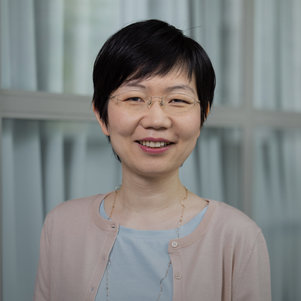The radiologist’s assistant
Qian Tao was interviewed by TU Delta on using AI in radiology. Qian is co-director of the CHEME AI Lab, one of our 24 TU Delft | AI Labs. The CHEME Lab investigates knowledge-driven AI and demonstrates its potential within two applied science domains in particular – chemical engineering and imaging physics. Artur Schweidtmann is the lab's other co-director; Lukas Schulze Balhorn, Qinghe Gao, Changchun Yang and Yidong Zhao are PhD students in the CHEME AI lab.
A group of spots and smudges in grey tints. MRI scans are not much more than this for laypeople. Just try to find a tumour, infection or haemorrhage on it. Only when the radiologist explains the image does the patient start understanding the picture.
Over the last few years, artificial intelligence has helped radiologists in hospitals all over the world interpret the images. It analyses scans faster and, in many cases, better. But this could be even better says Qian Tao. In CHEME, the AI Lab at the Faculty of Applied Sciences, the assistant professor is searching for an answer to the question how can the AI that reads the medical scans be made more trustworthy.
AI still makes mistakes, as she herself saw at her previous place of work at the Leiden University Medical Centre. “What makes it difficult is that we sometimes have no idea where the errors are made. And if you do not understand this, it is hard to trust AI at all.”
More reliable
At TU Delft, Tao is looking into how these errors are made. Her objective is to turn the artificial intelligence radiology assistant into a trustworthy partner. It is a major and popular area of research around the world.

Q. (Qian) Tao
She is trying to make AI processes more transparent. “We do not know exactly how AI sifts through the huge pile of data to arrive at a conclusion. But we want to understand this as far as we can so that we can fix any errors.” It is a huge challenge.
Tao does not think that transparency means that you have to understand everything. Another way to do it is having the AI show an uncertainty estimation with each outcome, which gains more insight in the process. “There is a big difference between 20% and 90% certainty.”
The whole article: "Using AI to read medical scans" can be read here.
